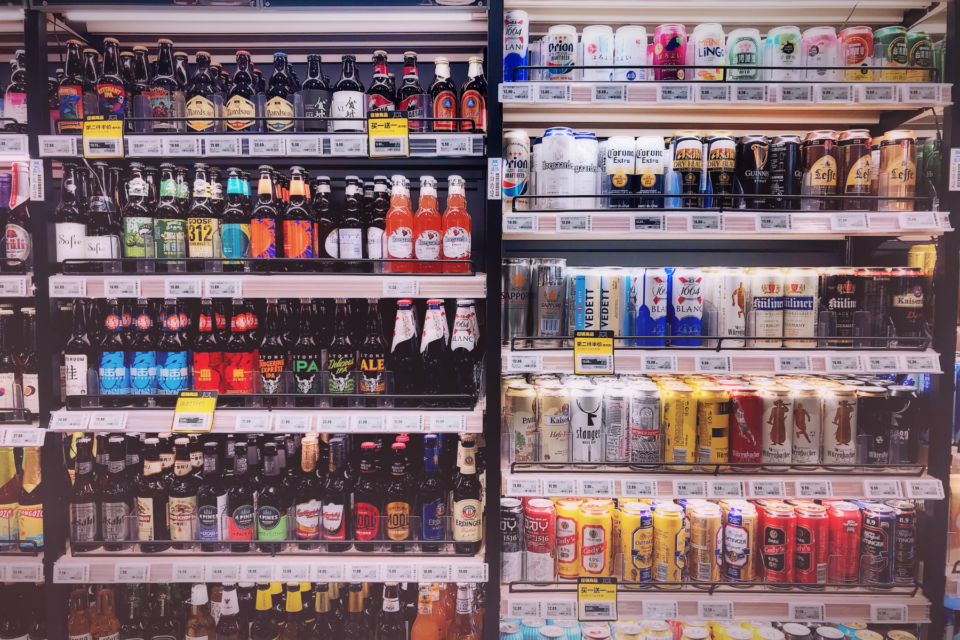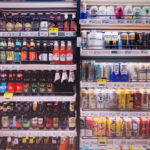The White House Wants to “Fix” the Exploding Beer Market

Homer Simpson just grunted. Instead of addressing record gas prices and skyrocketing inflation the White House wants to bring its government-knows-best approach to the beer market, even though beer and other alcohol markets are exploding with competition and new competitors. Let’s hope that policymakers reject these ideas faster than Homer spits out a piece of broccoli.
As part of its goal to remake the economy, the Biden Administration issued an Executive Order that requires agencies to examine the competitive landscape in many markets, including alcohol. The order rests on the premise that “over the last several decades, as industries have consolidated, competition has weakened in too many markets.”
In response, and no surprise given the White House’s directive, the Treasury Department concluded that consolidation has risen “particularly at the distribution and/or retail levels for beer, wine, and spirits and at the production level for beer.” The Department’s report recommends tighter antitrust scrutiny, a skepticism of efficiency claims, and a variety of potential rulemakings.
Unfortunately, forced to conform to the White House, the report is the sort of essay that Bart Simpson might turn in as homework, replete with flawed assumptions and misleading data.
In reality, competition and innovation are thriving across the beer, wine, and spirits industries. Today, the beer industry has five times the number of microbreweries and brewpubs/taprooms as a decade ago. Indeed, the beer industry supports more than 2 million jobs in the United States across a number of industries, including the over 200,000 individuals working at breweries and distributors. The last ten years has also seen the number of wineries increase by more than 50% and the number of craft distilleries surge exponentially.
Moreover, and contrary to the White House’s belief, industrial concentration levels among the four largest players within respective alcohol categories has decreased significantly during the past two decades.

Source: Industrial Concentration in the United States: 2002-2017
Microbrewers and craft distillers have been highly disruptive competitive forces. Even local vintners have played a part in the trend to deconcentrate these sectors as consumers have favored a diversity of offerings in the marketplace.
But it isn’t just economists and business groups — even labor unions agree that these markets are competitive. According to the Teamsters, “Despite being one of the most highly regulated industries in the United States, the last decade has seen significant growth of new beer manufacturers thereby providing consumers with more choice than ever before…. The beer industry is extremely competitive.”
Will the White House allow consumers to continue to pick winners and losers in the market?
Tim Wu, the White House’s Special Assistant to the President for Technology and Competition Policy, has questioned the ongoing utility of mass production in alcohol and other markets. In extolling the virtues of craft beer, Mr. Wu remarked that small breweries represent “a return to American tradition prior to mass production” and that “those are things we want the entire rest of the economy to look like.”
As Homer might say, “Can you repeat that?” Is Mr. Wu questioning the value of large-scale production to consumers and to the economy? Does he propose handcrafted cars and tailor-made airplanes? There is no doubt that consumers benefit from a variety of choices and price points, but consumers also benefit from the types of low prices and national consistency that comes from scaled production.
In the same series of comments, Mr. Wu next seemed to excuse select violations of federal law in order to target certain companies:
“We don’t want our federal enforcers” to go after “small technical violations,” he said. “We want them to take on the big cases against the entities that have market power” and the ability “to make big arrangements that have large anti-competitive effects.” Stadium deals of particular interest, he suggested…But in process, he suggested that small-scale pay-to-play — like a craft brewer buying a tap handle at the local bar — would not trigger enforcement.
What in the world is the White House talking about? Is it directing federal law enforcement officials to help its favored companies by turning a blind eye to obvious violations of the law? Viewed most charitably, one might agree that regulators should use their limited resources to tackle the most serious violations of law, but it is truly bizarre for a senior White House official to suggest that certain violations of the law should not be enforced. The law should apply across the board to players of any size.
Instead of taking their cues from the White House, policymakers should promote competition by reducing the costs of regulation. Setting aside the overconcentration narrative, the Treasury Department’s Report highlighted several potential barriers to competition, including overly expensive labeling requirements and some state regulations, such as post-and-hold laws. Although trying is the first step toward failure (to quote Homer), by tackling these real issues, policymakers could help consumers and competitors of all sizes.
Story by Sean Heather, U.S. Chamber of Commerce
Sean Heather is Senior Vice President for International Regulatory Affairs & Antitrust.


